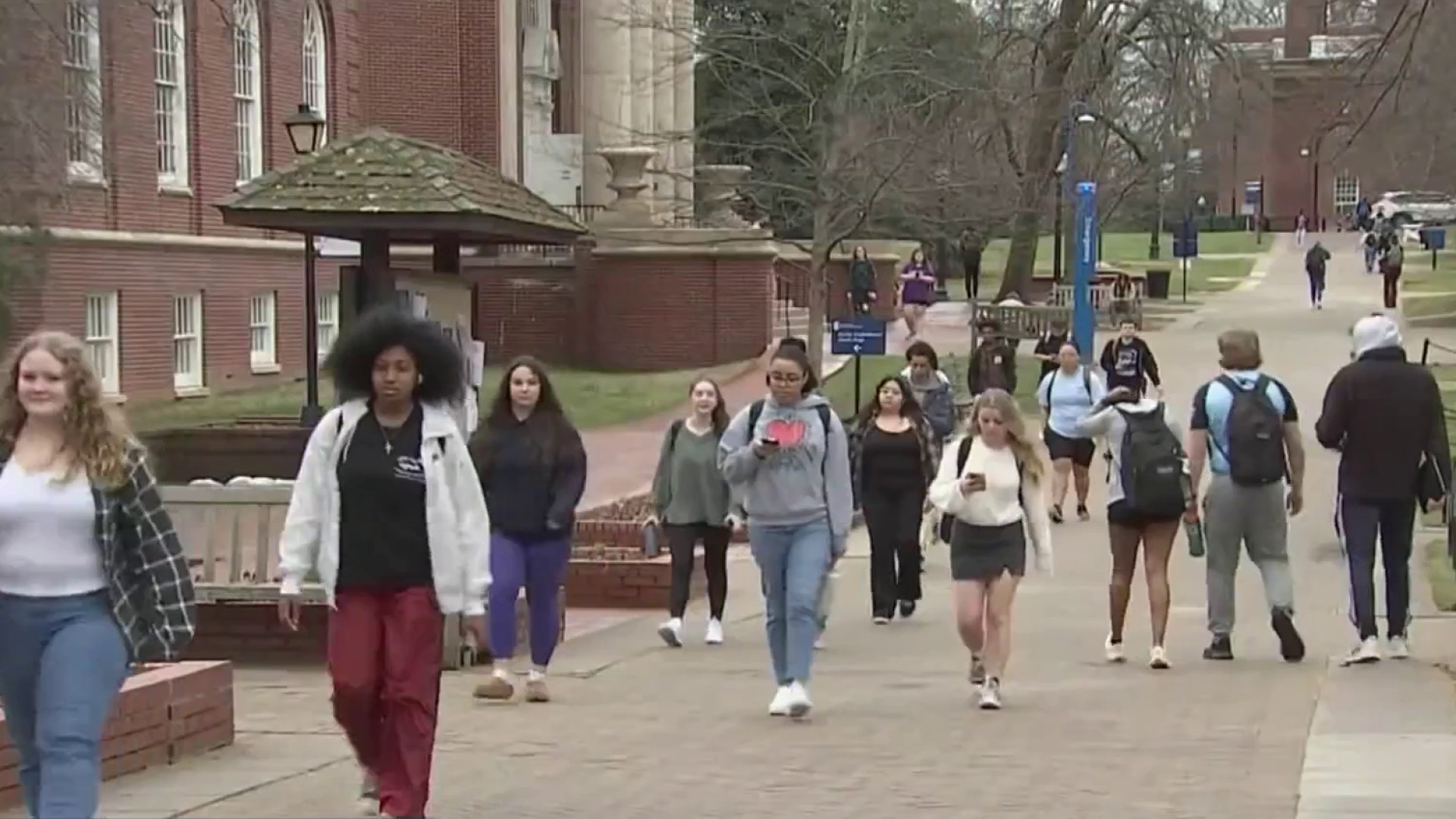Republican Gov. Glenn Youngkin's administration has identified nearly 3,400 voters who were improperly removed from the state's rolls due to probation violations — a greater number than previously acknowledged — and said Friday that local registrars have reinstated the vast majority of those individuals.
The governor's administration first disclosed the problem earlier this month following reporting from VPM News about concerns raised by civil rights advocates over improper voter removals. The error, which the administration has blamed on a data-sharing issue that misclassified probation violations as new felonies, has sparked criticism from Democrats, including a call from the state's Democratic congressional delegation for a Department of Justice investigation.
The full scope of the problem had been unclear until the Department of Elections' announcement Friday — less than two weeks before Election Day.
A department spokeswoman, Andrea Gaines, acknowledged in mid-October that at least 275 misclassified voters had been identified, but she had since declined to answer questions about the latest available figures. At the same time, inquiries made to local registrars' offices by The Associated Press and other news outlets made clear the total surpassed 275.
We're making it easier for you to find stories that matter with our new newsletter — The 4Front. Sign up here and get news that is important for you to your inbox.
For instance, in the capital city of Richmond — which has a population of about 230,000 — about 200 affected voters have been reinstated, according to a Friday interview with Keith Balmer, the city’s general registrar.
Eric Olsen, the director of elections and general registrar for Prince William County, said last week by email that 87 voters had been reinstated. The number had risen to 107, he said in an update Friday.
The Department of Elections said Friday that all affected voters have been notified by mail.
Local
Washington, D.C., Maryland and Virginia local news, events and information
“As of today, all but approximately 100 of these records have been processed by general registrars. ELECT staff continues to check in with localities to ensure each record is reinstated,” the department said in a news release.
Virginia also offers same-day voter registration, meaning impacted individuals would have the opportunity to remedy the situation and cast a provisional ballot in early voting or on Election Day. Every General Assembly seat is on the ballot this year, along with various local offices.
Democrats continued to be sharply critical of the error.
“First, we were told there was no problem. Then we were told it was small, contained problem. Now we’re told it is a massive problem, with numbers large enough to swing control of the General Assembly," said Aaron Mukerjee, an attorney working as the Democratic Party of Virginia’s voter protection director. “All of this confirms Republicans cannot be trusted with Virginians basic constitutional rights.”
It’s not clear whether the U.S. Department of Justice will investigate the matter. A DOJ spokeswoman who has previously acknowledged receipt of the congressional delegation’s request declined further comment Friday.
Youngkin has asked the state’s government watchdog agency to investigate.
In a letter dated Wednesday obtained by AP, Youngkin's chief of staff wrote to Inspector General Michael Westfall to memorialize a previous request from Youngkin for an administrative investigation into the “circumstances, data systems, and practices” surrounding the voter removals and a separate finding that in previous decades, thousands of Virginians may have been permitted to remain on the rolls despite being convicted of a new felony.
In Virginia, a felony conviction automatically results in the loss of a person’s civil rights, such as the right to vote, serve on a jury, run for office and carry a firearm. The governor has sole discretion to restore those civil rights, apart from firearm rights, which can be restored by a court.
The department said in an annual report this year that it had discovered 10,558 people who were convicted of a felony, had their rights restored and then were convicted of another felony, but were not subsequently removed from the list.
Jeff Goettman, the chief of staff, wrote that the administration suspects the errors “are the result of antiquated data systems and insufficient processes maintained over the last 20 plus years.”
The categorization of some probation violations as felonies “may date back decades, across multiple gubernatorial administrations,” Goettman wrote.
“It is important that we resolve these issues as soon as reasonably practical as Governor Youngkin believes that every eligible Virginian should exercise his or her right to vote,” the letter continued.



